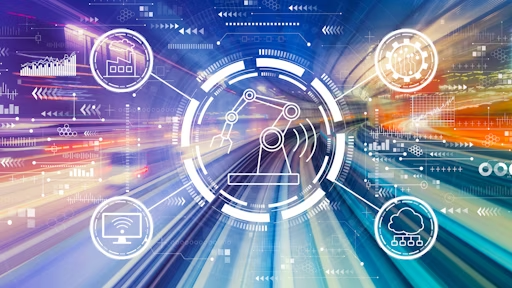
10/02/2025
Leveraging Artificial Intelligence (AI) in manufacturing is transforming the industry, enabling smarter, more efficient, and more flexible operations. It's no longer a futuristic vision but a practical reality that manufacturers can utilize to gain a competitive edge. Here's a breakdown of how AI is being leveraged:
Key AI Technologies in Manufacturing:
AI's ability to learn from data patterns and make predictions without explicit programming is a core component in areas like predictive maintenance, quality control, and process optimization.
A subset of ML, deep learning is particularly adept at image and video interpretation, crucial for applications like automated quality control and visual inspection.
Enables AI systems to "see" and interpret visual data, essential for tasks like defect detection and safety monitoring.
Facilitates human-machine interaction and analysis of unstructured data, improving communication and efficiency in areas like supply chain management and documentation.
Can create new content like designs, instructions, and even code, accelerating product development and streamlining processes.
Common AI Use Cases in Manufacturing:
Analyzing data from sensors to anticipate machine failures before they occur, allowing for proactive maintenance scheduling and reduced downtime.
AI-powered visual inspection systems can detect defects and anomalies with greater speed and accuracy than humans.
AI helps predict demand fluctuations, manage inventory, and streamline logistics for a more efficient and resilient supply chain.
AI powers robots that can perform repetitive or dangerous tasks, and enables collaborative robots (cobots) to work safely alongside humans.
AI algorithms generate innovative product designs based on specified parameters, accelerating the product development process.
Virtual replicas of physical assets used to simulate, analyze, and optimize production processes.
Combining AI with software and robotic equipment to automate complex tasks.
AI-driven tools and platforms provide personalized training and real-time support to employees.
AI can monitor the factory floor for hazards, ensure adherence to safety protocols, and even automatically check for regulatory updates.
AI can optimize energy consumption to reduce costs and environmental impact.
AI-powered systems predict stock needs, automate replenishment, and reduce holding costs.
Benefits of AI in Manufacturing:
Automates tasks, optimizes workflows, and minimizes human error.
Through predictive maintenance, optimized resource allocation, and reduced waste.
AI-powered systems detect defects more accurately and consistently.
Collaborative robots and AI-powered monitoring reduce workplace hazards.
AI helps optimize energy consumption and resource utilization, reducing environmental impact.
Enables faster product design, development, and customization.
Challenges of Implementing AI:
AI requires large datasets of clean, accurate data, which can be challenging to obtain.
A lack of AI and data science expertise can hinder adoption.
Adopting AI often requires significant investment in technology and infrastructure.
The maturity and reliability of some AI models, especially Generative AI, still need to be considered. By carefully considering these aspects, manufacturers can strategically leverage AI to transform their operations, improve efficiency, and drive sustainable growth.